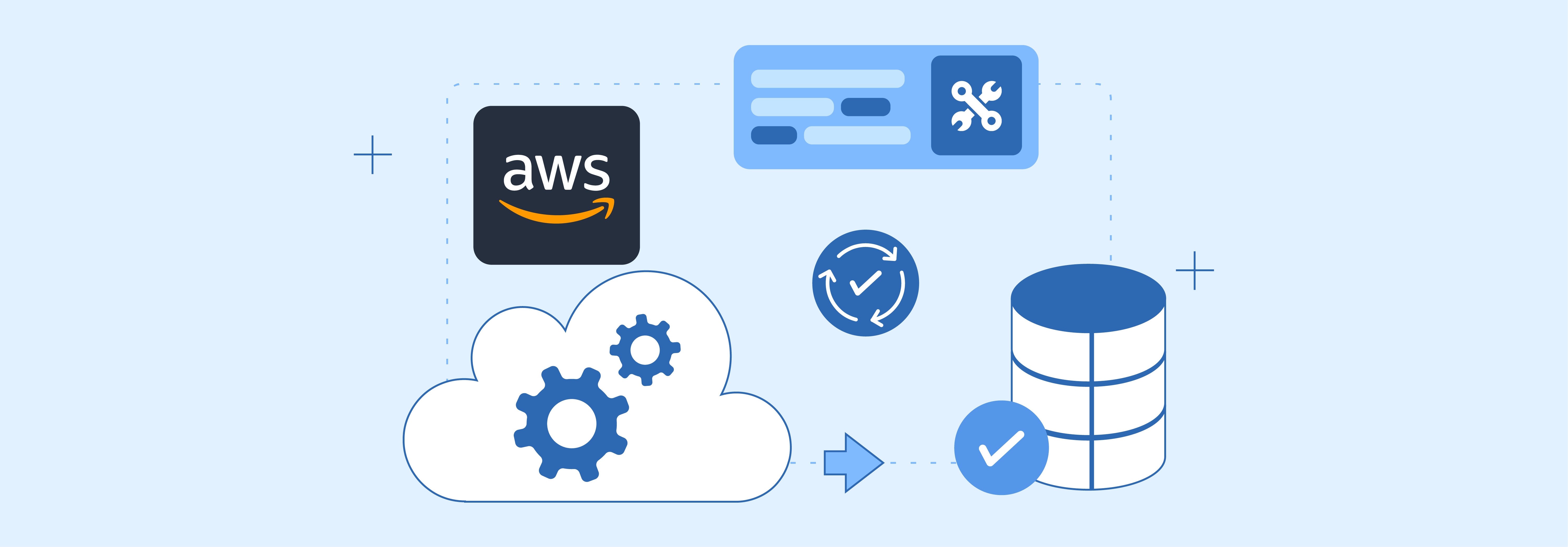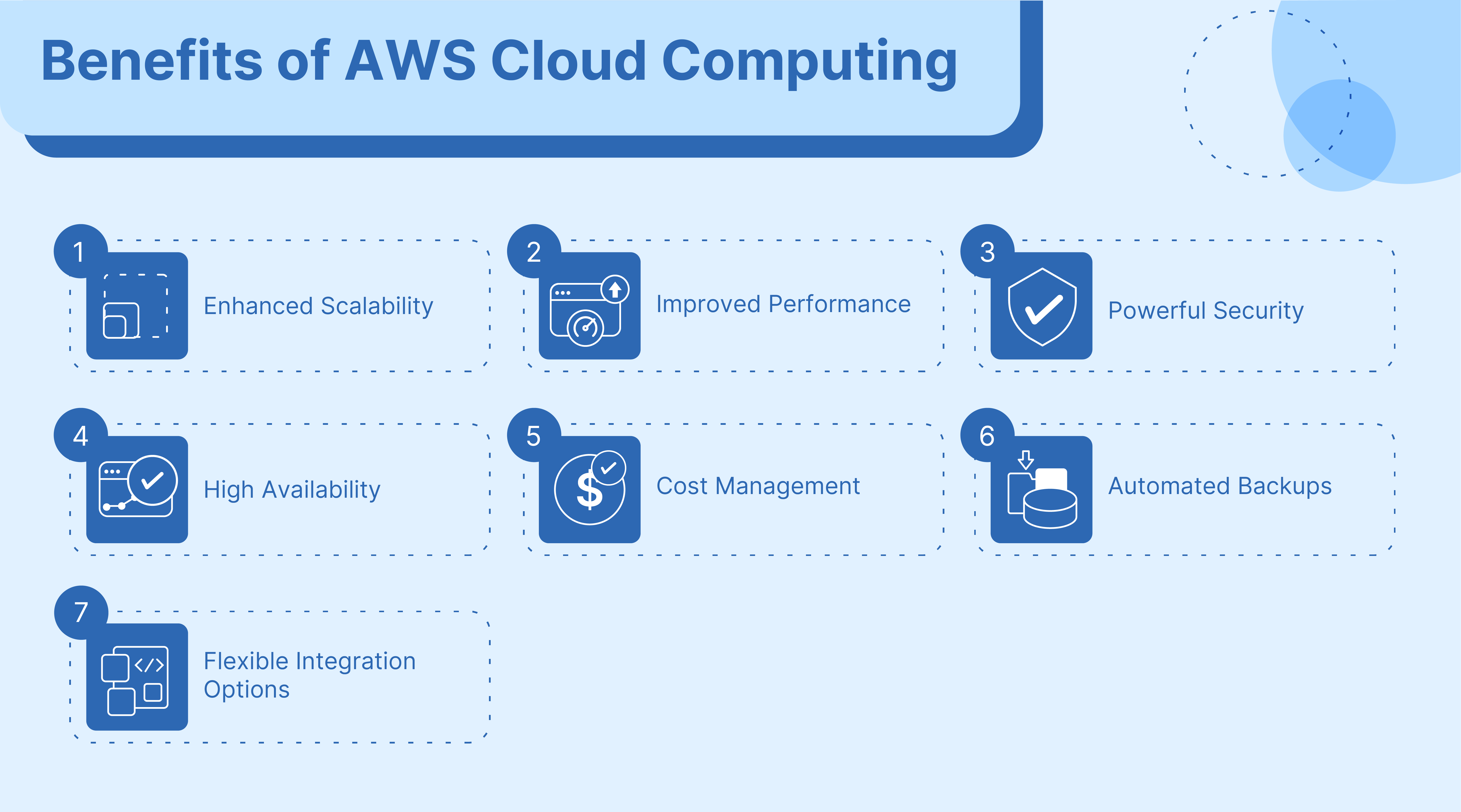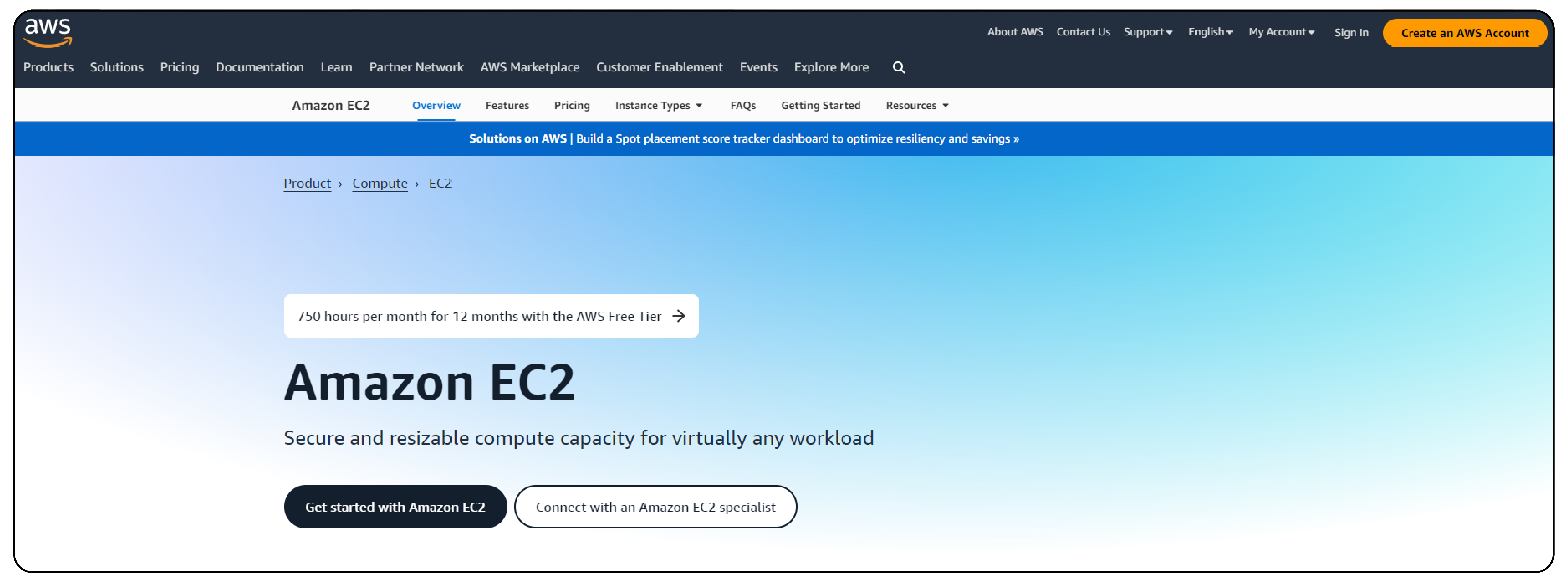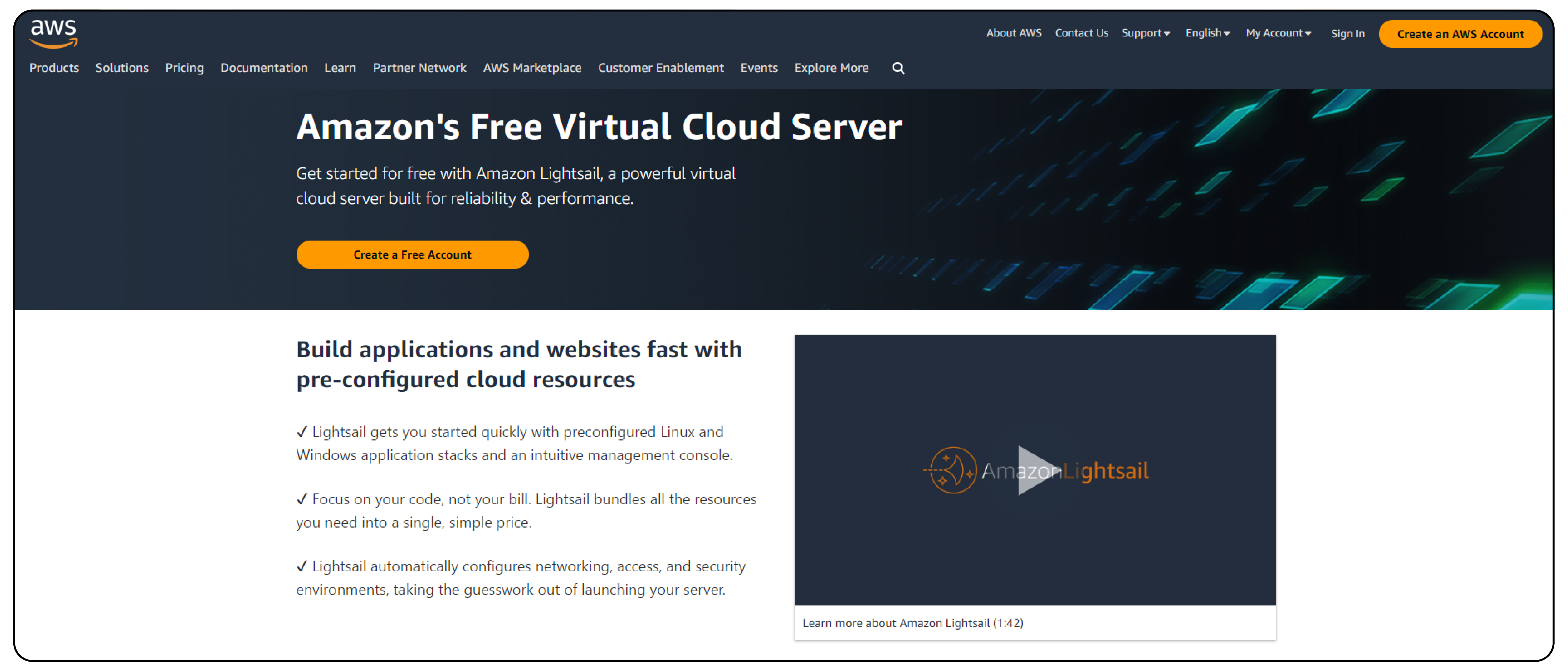
What is Amazon Web Service Used for in Web Hosting?
What is Amazon Web Services in Web Hosting? Amazon Web Service offers web hosting with scalable, powerful solutions. It provides the necessary computing power, storage, and security. AWS caters to diverse online needs, from small blogs to large e-commerce sites. This article will explore how to leverage AWS for web hosting effectively.
Key Takeaways
-
Learn how AWS revolutionizes web hosting.
-
Discover the essential AWS services for Magento web hosting.
-
Understand how AWS enhances web security and performance.
-
See how AWS caters to different business sizes.
-
Explore ways to optimize your web hosting with AWS.
What is AWS Cloud Service?

Amazon Web Services (AWS) is a comprehensive cloud computing platform that Amazon provides. While Google Cloud provides Google Cloud Storage, AWS grants Amazon Simple Storage Services. It offers a wide range of cloud services, including:
-
Computing power
-
Storage options
-
Content delivery
-
Database management
AWS enables enterprises and startups to run their applications on the company's powerful data center networks worldwide. These serve millions of customers, including the fastest-growing startups.
History Of AWS
-
Amazon Web Services (AWS) launched in 2006 as a pioneering cloud computing platform.
-
Initially, it offered basic services such as storage and computing capacity.
-
Over time, AWS expanded to include over 200 services.
-
These services cater to millions of customers worldwide. They serve large enterprises and fast-growing startups.
-
Today, AWS leads the cloud computing industry. It is known for its innovation and extensive support of global business infrastructure.
How Does AWS Service Work?
| Service Type | Description |
|---|---|
| Compute | Virtual servers for running applications. |
| Storage | Secure cloud storage solutions. |
| Database | Managed database services. |
| Networking | Global network management. |
| Analytics | Data analysis tools and services. |
| Machine Learning | Tools for building intelligent solutions. |
| Developer Tools | Integration and management tools for developers. |
1. Cloud Computing Framework
-
Using Amazon virtual servers and storage reduces the need for physical infrastructure.
-
Allows users to manage resources over the internet.
2. Scalable Resources
-
Automatically adjusts computing and storage resources based on user demand.
-
Helps businesses scale without large upfront investments.
3. Global AWS Infrastructure
-
Data centers are located in various regions and zones worldwide.
-
Enhances reliability and reduces latency.
4. Security and Compliance
-
Implements strong security measures like encryption and access controls.
-
Complies with global and regional regulations.
5. Developer and Integration Tools
-
Provides APIs and development environments for smooth integration.
-
Supports a wide range of programming languages and frameworks.
6. Analytics and Machine Learning
-
Offers tools to analyze data and gain insights.
-
Enables businesses to apply machine learning for improved decision-making.
Benefits of AWS Cloud Computing

1. Enhanced Scalability
-
Amazon web services offer Magento users the ability to scale resources based on changing demand.
-
This flexibility allows the infrastructure to expand during high-traffic times, like sales or promotions.
-
It also supports scaling down in periods of lower traffic to enhance cost efficiency.
-
For instance, during a flash sale, AWS Auto Scaling adjusts EC2 instances.
-
This change helps manage the surge in website traffic and maintains performance without manual intervention.
2. Improved Performance
-
AWS global data centers offer geographical diversity, allowing businesses to host their Magento sites closer to their customers.
-
Hosting closer to customers reduces latency and improves page load times.
-
Faster website performance often leads to a better user experience and can result in higher sales conversions.
-
Amazon CloudFront accelerates content delivery by caching static files close to users.
-
This caching reduces webpage load times.
3. Powerful Security
- AWS provides comprehensive security features such as,
-
Network isolation with Amazon VPC to create private networks
-
**[Distributed Denial of Service] (DDoS) attack mitigation with AWS Shield.
-
Compliance certifications like HIPAA, PCI-DSS, FedRAMP, etc.
To help safeguard sensitive data and ensure compliance with regulatory requirements.
-
These features include data encryption, network firewalls, and identity access management.
-
Such security layers are necessary for e-commerce platforms that handle sensitive customer information and financial transactions.
-
AWS Identity and Access Management (IAM) restricts access to Magento's backend.
-
It enhances security by limiting who can view or alter sensitive data.
4. High Availability
-
AWS's infrastructure is designed for high availability and fault tolerance.
-
By leveraging AWS, Magento stores can achieve higher uptime and continuous availability.
-
It is important for maintaining customer trust and minimizing potential revenue losses from downtime.
-
AWS Elastic Load Balancing distributes incoming traffic across many servers.
-
This distribution ensures consistent availability during peak traffic times.
5. Cost Management
-
AWS offers a pay-as-you-go pricing model. It allows businesses to pay only for the resources they use.
-
The model is cost-effective for small to medium-sized enterprises.
-
Many enterprises need predictable traffic that justifies the expense of dedicated servers.
-
They benefit from the AWS free tier and scalable AWS resources.
-
Using Amazon S3 for storage, a small Magento business pays only for the space it uses.
-
This approach avoids hefty upfront hardware investments.
6. Automated Backups
-
AWS facilitates easy setup of automated backups, enhancing data protection.
-
Regular backups ensure quick data recovery in the event of a system failure.
-
Minimal data is lost during recovery.
7. Flexible Integration Options
-
AWS supports a wide range of APIs and services. These enable smooth integration with other systems and applications.
-
This flexibility allows businesses to enhance their Magento stores. They can add features like advanced analytics and machine learning.
Amazon EC2 and Amazon LightsailWeb Services For AWS hosting
Amazon EC2 (Elastic Compute Cloud) and Amazon Lightsail are two key services provided by Amazon Web Services. They offer web hosting with flexibility, scalability, and cost-efficiency. These cloud computing services are integral to AWS's comprehensive cloud platform. This platform is broadly adopted globally as the most fully featured public cloud. Here’s a look at how both services support web hosting:
1. Amazon EC2

Amazon EC2 provides scalable computing capacity in the AWS cloud. It allows users to run and manage server instances as needed. It makes it a powerful tool for complex applications and large-scale operations on the AWS platform.
- Flexible Configurations: Use AWS services for custom solutions tailored to meet specific requirements. Users can choose from a wide variety of EC2 instance types. Selection is based on the specific needs of their applications. Options include,
-
Memory
-
CPU
-
Storage optimized instances
It showcases the fully featured services that AWS offers from data centers. This flexibility ensures that resources match the demand without over-provisioning.
-
Scalability: EC2 excels in scalability. It supports a wide range by actively adjusting resources based on real-time demands. It caters to small developer applications as well as large enterprise operations.
-
Integration with AWS Services: EC2 integrates with other AWS services. It connects with Amazon S3 for storage and Amazon RDS for databases. EC2 also works with AWS Lambda, which runs code in response to events. This integration enhances the functionality of web-hosted applications.
-
Security and Reliability: AWS provides sturdy security measures. These include,
-
Network isolation
-
Data encryption
-
Access control options
These measures ensure secure and reliable operations.
- Cost Management: EC2 follows a pay-as-you-go pricing model. With various purchasing options like
-
On-Demand
-
Reserved Instances
-
Spot Instances
Users can optimize costs based on their usage patterns on the AWS platform.
2. Amazon Lightsail

Amazon Lightsail is designed for simpler use cases compared to EC2. It offers a straightforward setup for projects needing less customization. It makes it ideal for small businesses and developers seeking a quick launch.
-
Simplicity and Speed: Lightsail provides pre-configured templates for web servers, developer environments, and other application stacks. It reduces the setup time.
-
Predictable Pricing: Unlike EC2’s variable costs, Lightsail offers a fixed monthly pricing plan. It includes,
-
Compute power
-
Memory
-
Storage
-
Data transfer
Simplifying budgeting for users.
-
Built-in Security and Scalability: While simpler than EC2, Lightsail still offers essential security features. These include a firewall and key management. It also allows easy scaling. Users can take snapshots that help upgrade or clone instances as their needs grow.
-
Integrated Tools: Lightsail includes built-in management tools for monitoring and scaling. These tools are accessible through the AWS management console.
Comparison of AWS Pricing and Features EC2 and Lightsail
| Feature | Amazon EC2 | Amazon Lightsail |
|---|---|---|
| Target Audience | Large enterprises, complex applications | Small businesses, simple applications |
| Configuration | Highly customizable | Pre-configured options |
| Pricing | 1. Pay-as-you-go, variable 2. Starts from $0.0058 per hour for a t3.nano instance | 1. Fixed monthly rates 2. Starts at $3.50 per month for the smallest bundle |
| Scalability | High, flexible | Moderate, with easy scaling options |
| Integration | Extensive with AWS services | Basic integrations, simpler setup |
| Security | Advanced security options | Basic security, easy to manage |
FAQs
1. What is Amazon Web Service (AWS) in web hosting?
AWS is a cloud computing platform. It provides various services such as computing, storage, databases, and more for web hosting. It offers scalable and reliable solutions. These solutions help businesses host their websites or web applications.
2. How can I get started with AWS?
To get started with AWS, you can create an AWS account and explore the various services available. AWS also offers training and certification programs to help users learn how to use AWS effectively.
3. What is the history of AWS?
AWS was launched by Amazon in 2006 as a cloud computing platform. Over the years, it has evolved into one of the world's most comprehensive and broadly adopted cloud platforms. It offers over 200 fully featured services.
4. What kind of services does AWS offer?
AWS offers a wide range of services. These include compute services, database services, developer tools, and management tools. Storage services, such as Amazon S3, are also provided. AWS is positioned as the world's most comprehensive cloud platform. It allows businesses to build and scale their applications on this platform.
5. How do companies use AWS?
Companies use AWS to lower costs. They also improve scalability and increase the reliability of their IT infrastructure. AWS provides a secure and flexible cloud environment. This environment enables businesses to innovate and grow. Businesses leverage AWS security features.
6. What is the reliability of AWS as a cloud provider?
AWS is known for its reliability and uptime, with a strong infrastructure and data centers around the world. It is a trusted cloud provider used by companies of all sizes for their hosting and computing needs.
7. How does AWS ensure cloud security?
AWS offers a range of security features. It provides compliance certifications. These measures ensure the security of user data and applications. It has a strong focus on protecting customer privacy and maintaining data confidentiality.
Summary
What is Amazon Web Services Used For? Amazon Web Services (AWS) is a comprehensive and widely adopted cloud computing platform provided by Amazon. Here's a wrap-up of what AWS offers:
-
It outlines core AWS services such as computing, storage, database management, and networking.
-
It highlights AWS's scalable cloud infrastructure and global data centers.
-
It discusses AWS's powerful security protocols, including encryption and identity management, to protect data and ensure compliance with regulations.
Consider managed Magento hosting to optimize performance for Amazon web services.



